When you imagine an entrepreneur, the visual that first hits your mind is that of a person who is dressed in a power suit, exudes confidence and can sway entire boardrooms with a single speech. In recent years, with more women breaking the glass ceiling and choosing to become entrepreneurs across many fields, this image has shifted—and Thinlas Chorol is the epitome of it. This Ladakhi entrepreneur runs the first women-owned, women-run travel and trekking agency in the region. Dressed in trekking gear and donning an amiable smile as well as expertise in her field, she is leading the way in changing your perception of entrepreneurs, while also guiding tourists through some of the most beautiful and challenging terrains this country has to offer.
During her exclusive conversation with Her Circle, Chorol described her journey thus far, and the immense challenges posed by the COVID-19 pandemic, which the world is still struggling to come out of. Here’s what you need to know.
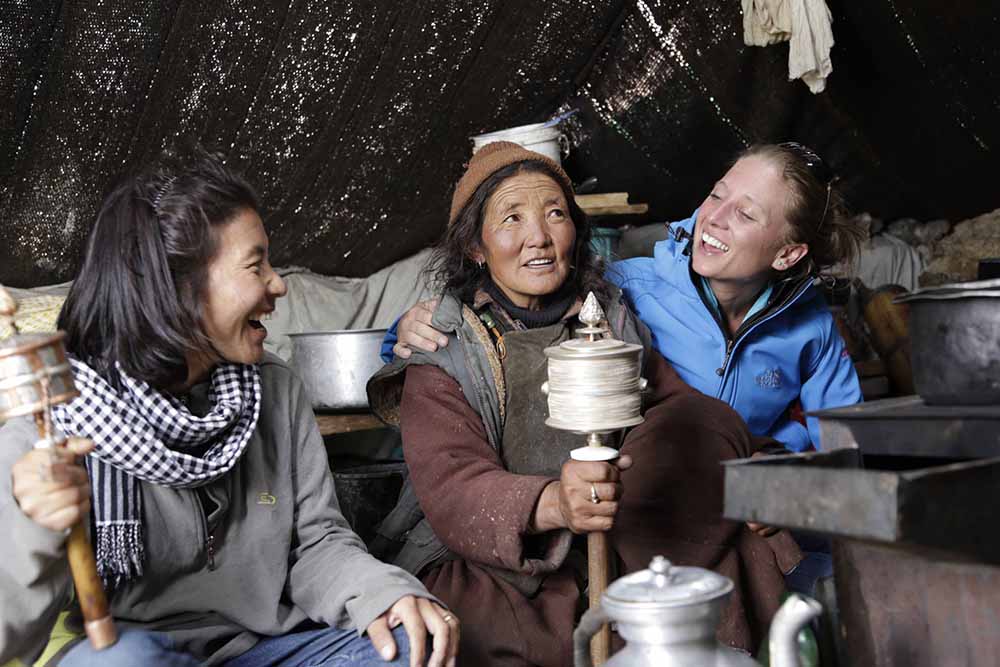
Empowering Women To Become Trekking Guides
Chorol started the Ladakhi Women’s Travel Agency in 2009, but her relationship with the Ladakhi terrain began in her childhood. Growing up in the village of Takmachik in Leh district, where her parents were farmers, Chorol used to take the family’s goats and sheep to the high pastures for grazing. Their holidays were all about trekking up the mountain routes. But her interest in becoming a travel guide emerged much later. 'When I was in college, I used to go as a guide with tourists visiting Ladakh,' she explains. 'And then I saw two things: one, I saw the many of Ladakhi women were interested in becoming a guide. And second, many tourists are happy to see female guides. That’s why I started the Ladakhi Women’s Travel Company to encourage Ladakhi women to become guides.'
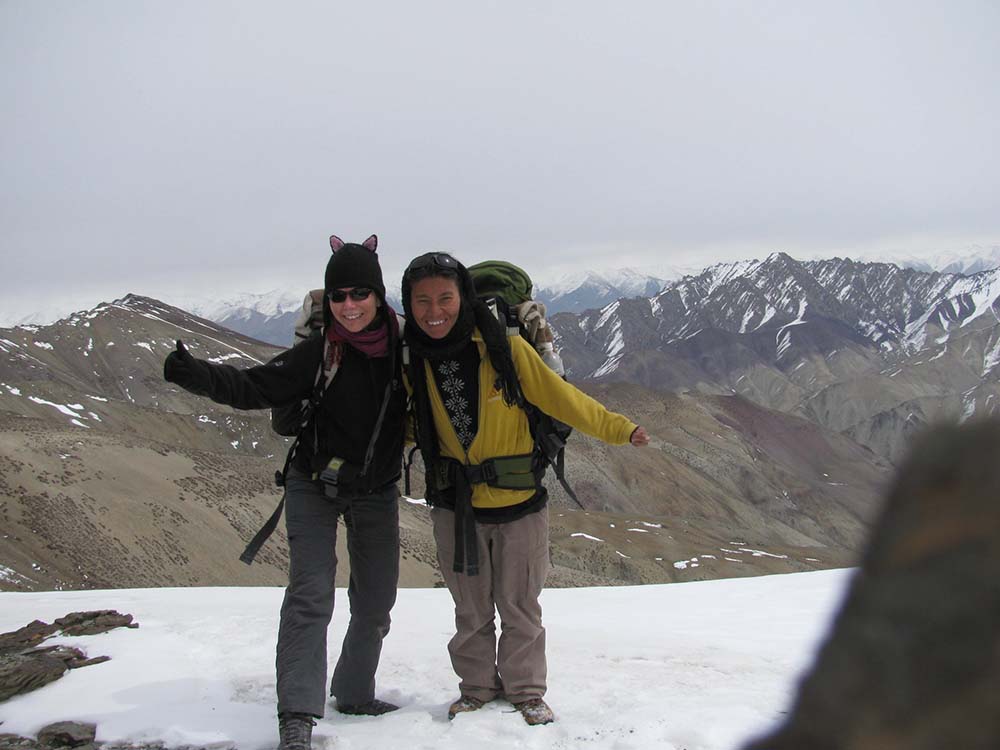
So, in 2009, she started her company and started recruited women of the region to work as tour guides. 'Ladakhi women are very strong. Women here don’t work in the tourism field because of lack of opportunities,' she says, adding that she wanted to become the one to provide those opportunities. 'In the beginning, when I started in 2009, there was no other woman guide. We had to train the women guides. We started by taking in any women who are interested in becoming guides, and they work as porters in the beginning. As soon as they improve their English, learn the routes and know what it takes to become a guide, we give them that designation.'
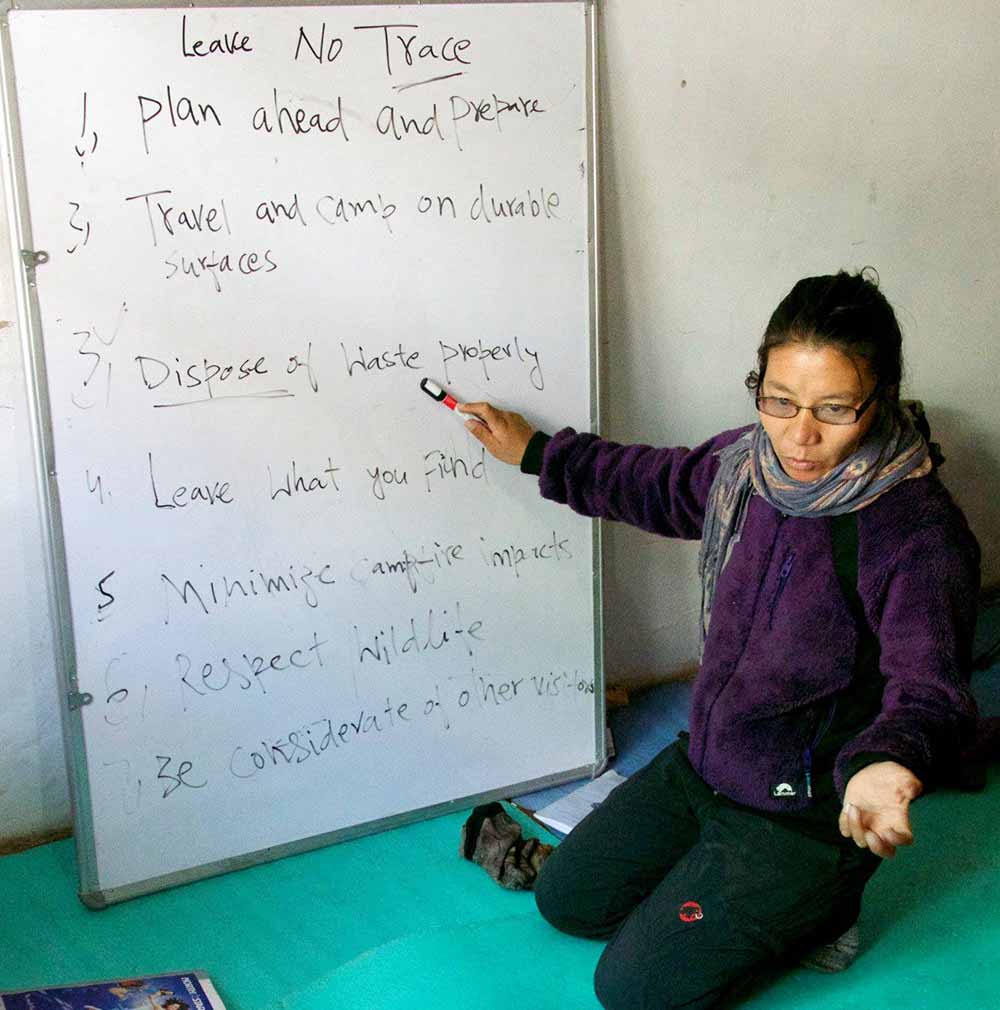
While their operations have been deeply affected during the pandemic, before the coming of the coronavirus, her team had grown to include 30 women. The response from the tourists is enough to keep Chorol and her team going. 'Tourists tell us that they’ve been to other parts of India, and they haven’t seen any women guides. They keep telling us that it’s good to have women working in the tourism industry,' she added.
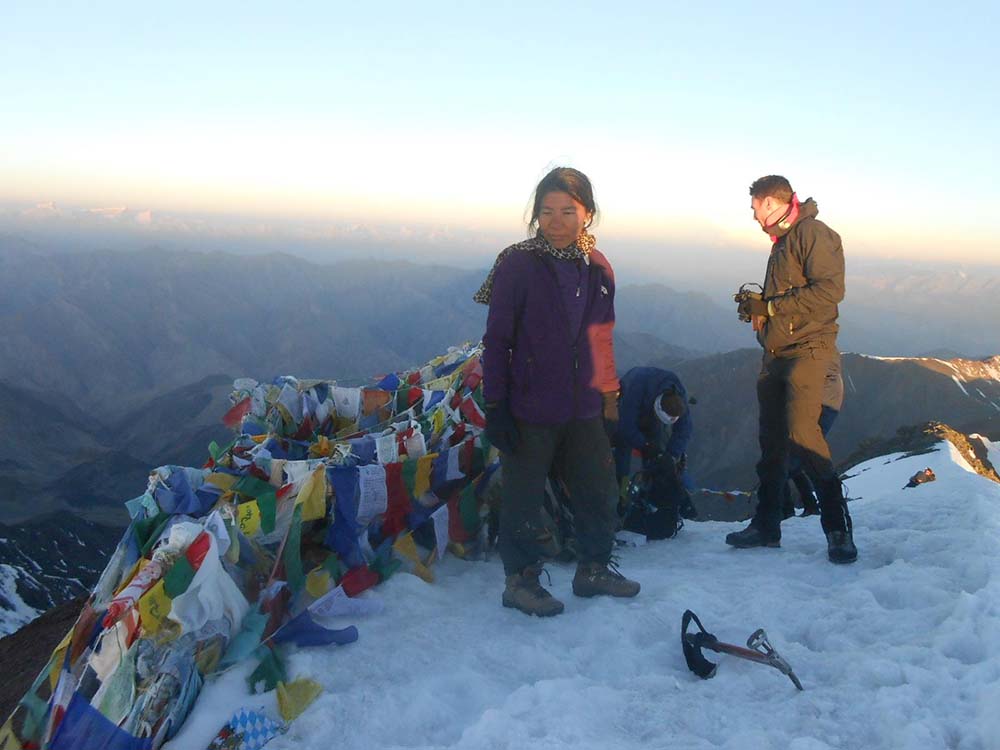
Facing Challenges Head On
One of the first problems Chorol had to tackle after setting up her company was something beyond her control. 'In Ladakh, the tourist season is very short. We get to work for only a few months, from May to September,' she says. 'Most of the women who work with me are young—some of them are studying also. So they work during the tourist season only.' However, things changed during the pandemic, especially with the lockdowns and the travel restrictions. How did Chorol and her team handle it?
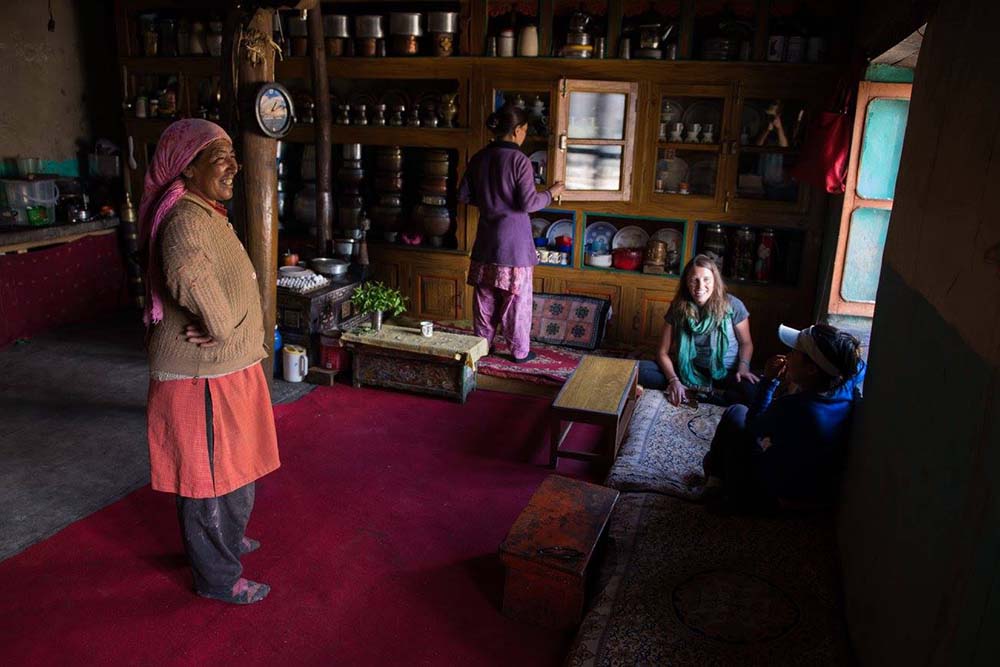
'During the pandemic, in 2020, we raised some funding for ourselves and then we did some cleaning drives. We got some income from that,' she explains. 'Last year, we didn’t do any activity because travelling in large groups was still not allowed. Some of the women started working in guest houses, as and when domestic tourists started coming in again in 2021. Many women are also working as labour in the army. Some of us also have children, so we have responsibilities there as well,' added the mother of a two-year-old son.
Committing To Ecotourism & Women Empowerment
One of the highlights of Chorol’s initiative is the fact that she is completely committed to ecotourism, especially by promoting homestays. 'During the homestays, we stay in Ladakhi villages, where the hosts give breakfast, lunch and dinner. We all just help out the hosts in the kitchen, so it gives us opportunities for cultural interaction apart from the trekking,' she says. 'We try to promote ecotourism because in Ladakh, most of the villages fall along the trekking route. So camping around those villages leaves a lot of plastic and garbage. That’s why we focus on homestays instead of camping, trying to keep the trek eco-friendly. We encourage the tourists to buy local produce and other things.'
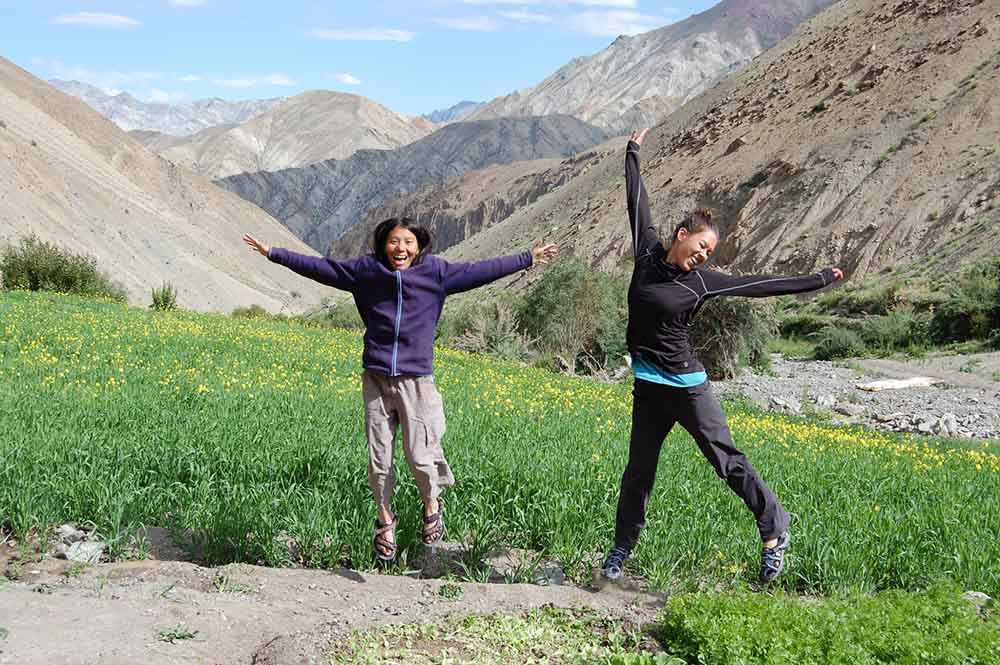
She says that when in Ladakh, committing to ecotourism is as important as taking some time to acclimatise to the high altitude. 'It’s also better to use homestays instead of hotels and guesthouses because Ladakh doesn’t have any recycling methods as yet. Dealing with the garbage is a big issue here. Instead of buying plastic bottles, you can get boiled or filtered water from homestays,' she says, adding that 'the landscape here is very beautiful, but we have to think about the environment. So, it’s best to use reusable things. Try not to buy lots of plastic in Ladakh.'
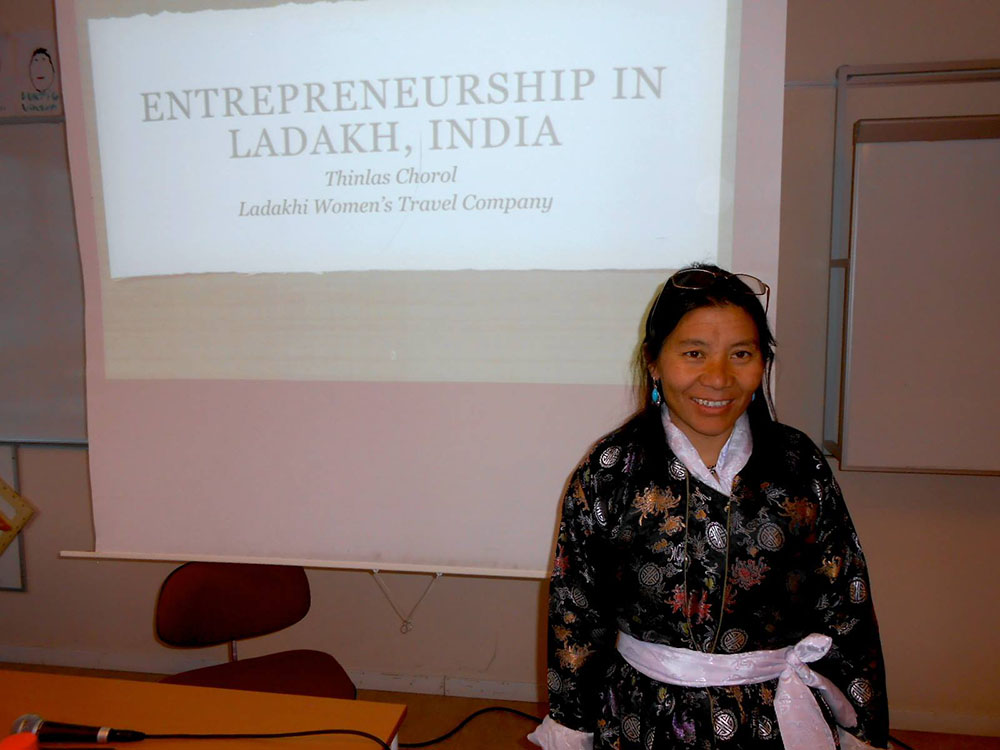
For women travelling to Ladakh on a much-coveted solo trip, girl gang tour or a family trip for that matter, Chorol suggests taking up the opportunity to hire her and her team. 'Ladakh is believed to be a very safe place, but even then it’s difficult to tell. Plus, travelling with women guides can give women the opportunity for cultural exchange,' she quips. 'They can learn so much about Ladakh, Ladakhi women, our cuisine and other things. And we also come to know about what women in other parts of India and the world are doing and going through. I think this is a good experience to have, because I have seen that compared to men, women face more challenges. If it’s a women-only group, we can talk more openly, learn and share.'
Before we parted, Chorol asked us to pass on her message to the women of the world: 'We have the same capabilities as men, it depends on us to use our skills, abilities and knowledge.'
*Image courtesy: Facebook/Thinlas Chorol